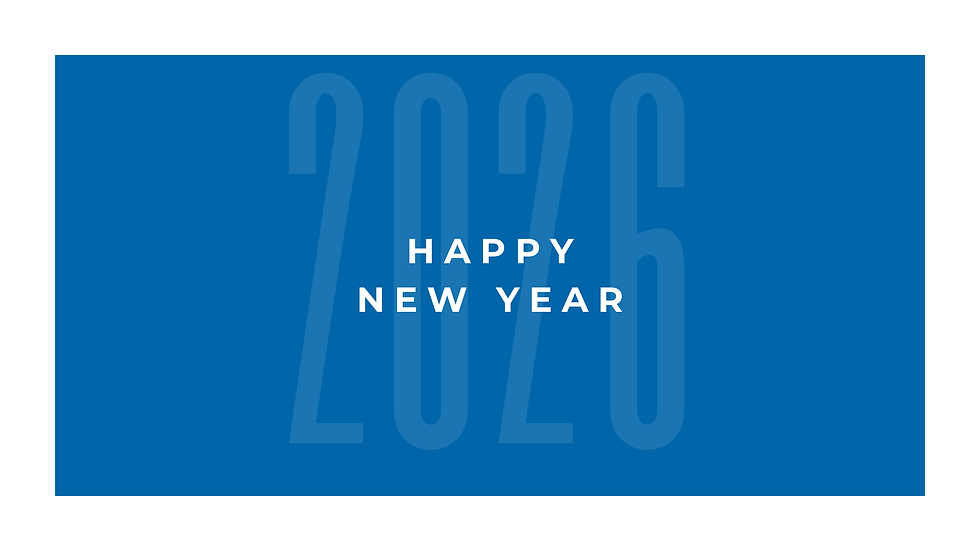Building Bridges of Hope and Understanding
- Sep 3, 2025
- 4 min read

In a world that often feels rushed and disconnected, there's something profound in taking a moment to truly see the people around us. Today, we want to talk about something that touches every community, every family, and every heart in some way: mental health.
Mental health struggles don't discriminate. They can affect anyone – the colleague who always seems cheerful, the neighbor who waves every morning, the family member who appears to have it all together. Behind every smile, there might be someone fighting a battle we can't see. And that's exactly why awareness, compassion, and community support matter so much.
Recognizing When Someone Needs Support
Sometimes, the signs that someone is struggling aren't obvious. But there are gentle indicators that someone might need extra care and attention:
Changes in Connection:
Withdrawing from friends, family, or activities they once enjoyed
Seeming distant or disconnected in conversations
Suddenly reaching out to say goodbye or expressing unusual gratitude
Shifts in Mood and Behavior:
Talking about feeling hopeless, trapped, or like a burden to others
Dramatic mood swings or sudden calmness after a period of distress
Changes in sleeping or eating patterns
Giving away meaningful possessions
Expressions of Pain:
Speaking about death, dying, or wanting to disappear
Feeling like there's no point or purpose
Expressing that others would be better off without them

The Power of Human Connection
Here's what's beautiful about being human: we have an incredible capacity to heal each other simply through connection. Small acts of kindness can create ripples of hope that extend far beyond what we can imagine.
Simple Ways to Show You Care:
Listen Without Fixing: Sometimes the most powerful thing we can do is simply be present. You don't need to have all the answers – just showing up and listening can be transformative.
Check In Regularly: A simple "How are you really doing?" followed by genuine attention to the answer can mean everything to someone who's struggling.
Share Meals and Moments: Invite someone for coffee, a walk, or just to sit together. Loneliness often amplifies pain, while connection can diminish it.
Speak Life: Tell people what you appreciate about them. Share specific examples of how they've made a difference. We often assume people know their worth – but hearing it can be life-saving.
Stay Connected: Don't let one difficult conversation be the last one. Follow up, check back in, and continue to show that you're there for the long haul.

Creating Communities of Care
Imagine if every neighborhood, workplace, and family operated as a safety net of support. We can make this vision a reality by:
Building Bridges, Not Walls:
Approaching mental health conversations with curiosity rather than judgment
Sharing our own struggles when appropriate – vulnerability creates connection
Learning about mental health so we can be better supporters
Normalizing Help-Seeking:
Talking openly about therapy, counseling, and mental health care as normal parts of wellness
Celebrating when people seek help rather than stigmatizing it
Understanding that asking for help is a sign of strength, not weakness
Creating Safe Spaces:
Being someone others can trust with their pain
Responding to disclosures with gratitude: "Thank you for trusting me with this"
Following up on conversations about mental health struggles
The Digital World: Where Words Can Heal or Harm
In our interconnected world, much of our daily interaction happens through screens – social media, texts, comments, and online communities. What we often forget is that behind every profile picture, username, and post is a real human being with real feelings, real struggles, and a real need for connection and kindness.
The Hidden Impact of Online Interactions: Every comment we leave, every response we give, and every message we send has the power to either lift someone up or tear them down. For someone already struggling with mental health challenges, online bullying or mean-spirited comments can feel like the final push into a dark place they can't escape from.
Consider this: that person you're about to respond harshly to might have just lost a job, received difficult news, or be fighting battles you can't see. Your words might be the difference between someone feeling hopeful about tomorrow or feeling like there's no point in trying.

Be the Light
Today, we invite you to join a movement of kindness that could literally save lives. Here's your mission, should you choose to accept it:
Practice digital kindness: Leave one genuine, uplifting comment on someone's social media post.
Practice active listening in your conversations – put away distractions and truly focus on the person speaking.
Transform your social media: Unfollow accounts that consistently spread negativity and follow mental health advocates, positive communities, and uplifting content creators.
Be an upstander: If you see cyberbullying or mean comments online, respond with kindness or report harmful content.
Advocate for mental health awareness and kindness in your workplace, school, community, and online spaces.
Model healthy help-seeking behavior by prioritizing your own mental wellness and showing others it's okay to ask for help.
Every person reading this has the power to be someone's reason to hope. You don't need special training, professional credentials, or perfect words. You just need to show up with genuine care and the willingness to stay connected.
In a world that can feel harsh and lonely, we have the opportunity to be soft and connected. We can be the people who notice, who care, who ask the hard questions, and who stick around for the messy answers.
Because at the end of the day, we're all walking each other home. Let's make sure no one has to walk alone.
If you or someone you know is struggling with thoughts of suicide, please reach out for help immediately. Call 988, text "HELLO" to 741741, or contact emergency services. You matter, your life has value, and help is available.
When Professional Help is Needed
While community support is crucial, sometimes professional help is necessary. If you or someone you know is in immediate danger, don't hesitate to:
Call 988 (Suicide & Crisis Lifeline) – available 24/7
Text "HELLO" to 741741 (Crisis Text Line)
Call 911 if there's immediate danger
Go with them to the emergency room if needed
National Resources:
988 Suicide & Crisis Lifeline: Call or text 988
Crisis Text Line: Text HOME to 741741
National Alliance on Mental Illness (NAMI): 1-800-950-NAMI
SAMHSA National Helpline: 1-800-662-4357
***Professional help is also available through Vitable, which provides mental health support for those who need it.







Comments